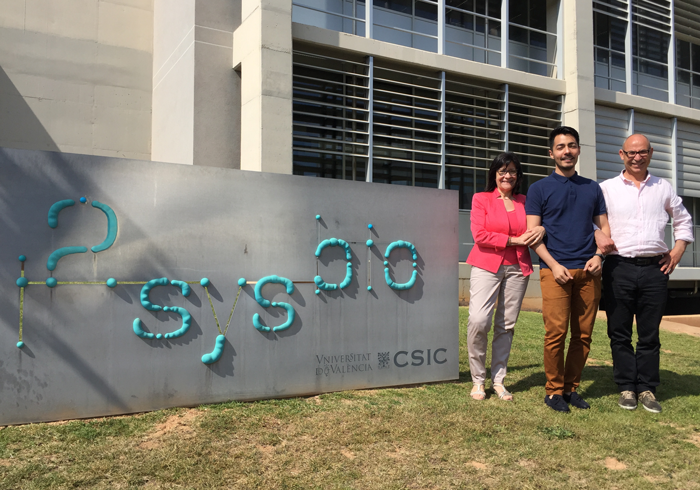
This doctoral thesis, co-directed by Amparo Latorre and Abdelaziz Heddi, studies the genomes of two insects that established bacterial symbiosis at very different times: the cedar aphid (150 million years ago) and the rice weevil (30,000 years ago). The thesis was defended on June 21, 2019 and received the rating of Outstanding.
Insects, the most diverse group of animals with around five million species, are capable of taking advantage of practically any food source. However, in multiple occasions they depend on microbial companions to obtain scarce nutrients in their diet. In addition to keeping their endosymbionts under control, insects must be able to cope with numerous infections. Although insects have only an innate immune system, it is capable of protecting insects against most infections.
The main objective of this thesis, entitled "Comparative genomics between two insect symbiotic models: Innate immune system and amino acid biosynthetic pathways of the rice weevil Sitophilus oryzae and the cedar aphid Cinara cedri", was to identify differences in the genetic repertoire of insects with endosymbiotic relationships at different ages: the rice weevil S. oryzae and the cedar aphid C. cedri. This selection was made because the relationship between C. cedri and its endosymbiont (Buchnera aphidicola) was established at least 150 million years ago, while the symbiosis between S. oryzae and Sodalis pierantonius is much younger (around 30,000 years). The study of the immune system shows that the characteristics of aphids make them prone to adopt certain bacterial types as symbionts. As for metabolic capacities, both models confirm the hypothesis that there is a logic in the symbiotic association that is determined by the composition of the diet, so that bacteria are adopted that complement the essential nutrients that are scarce in it.
Carlos Vargas' doctoral thesis was carried out in the Evolutionary Genetics group of I2SysBio, under the supervision of Amparo Latorre (professor of genetics, UV) and Abdelaziz Heddi (professor and member of the Biologie Fonctionelle Insectes et Interactions group, INSA and Université de Lyon).
The tribunal, which qualified the thesis as "Outstanding", was formed by Francisco Silva (professor of genetics UV, member of I2SysBio), Josefa González Pérez (CSIC tenured scientist at the Institut de Biologia Evolutiva, CSIC-UPF, Barcelona) and Anne-Nathalie Volkoff (research professor at INRA, Montpellier).











